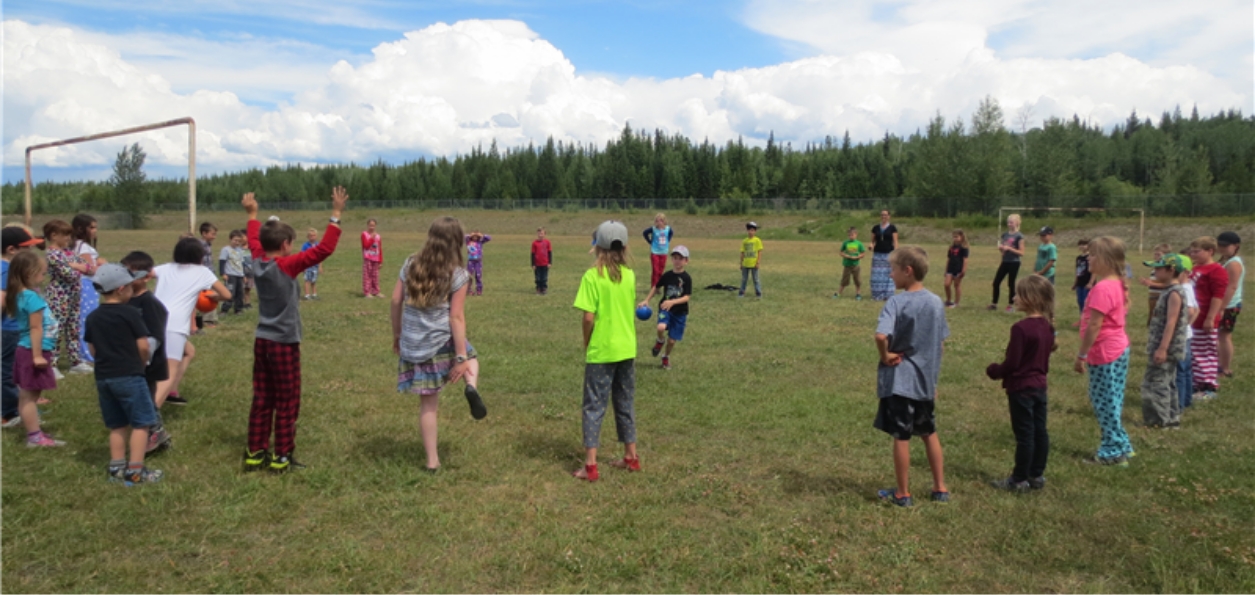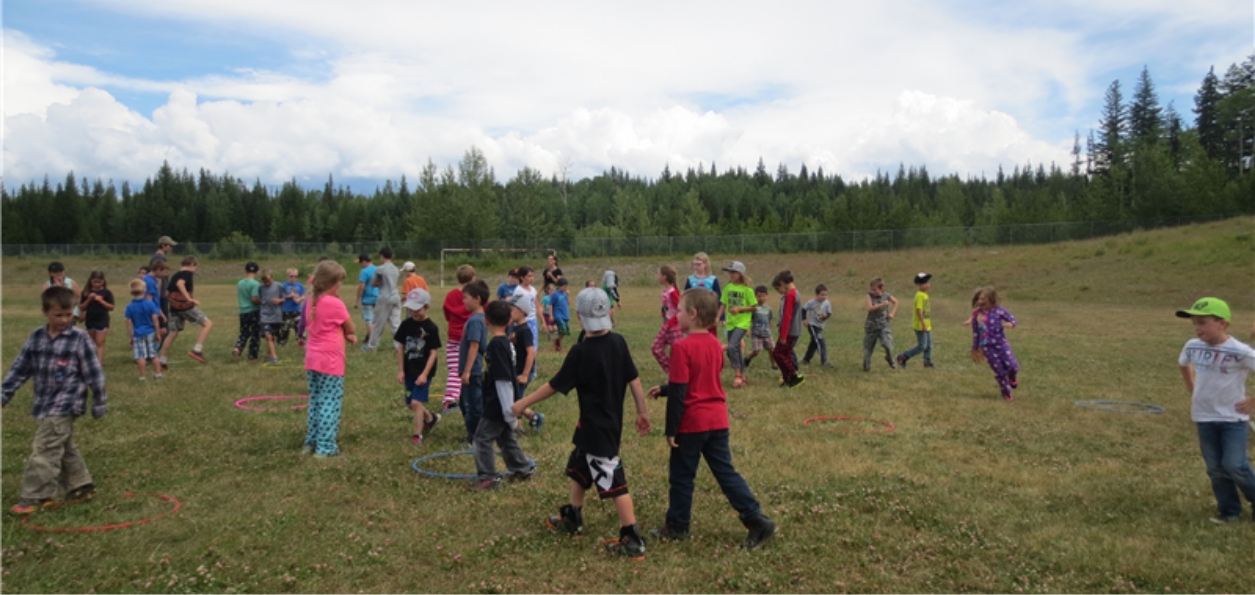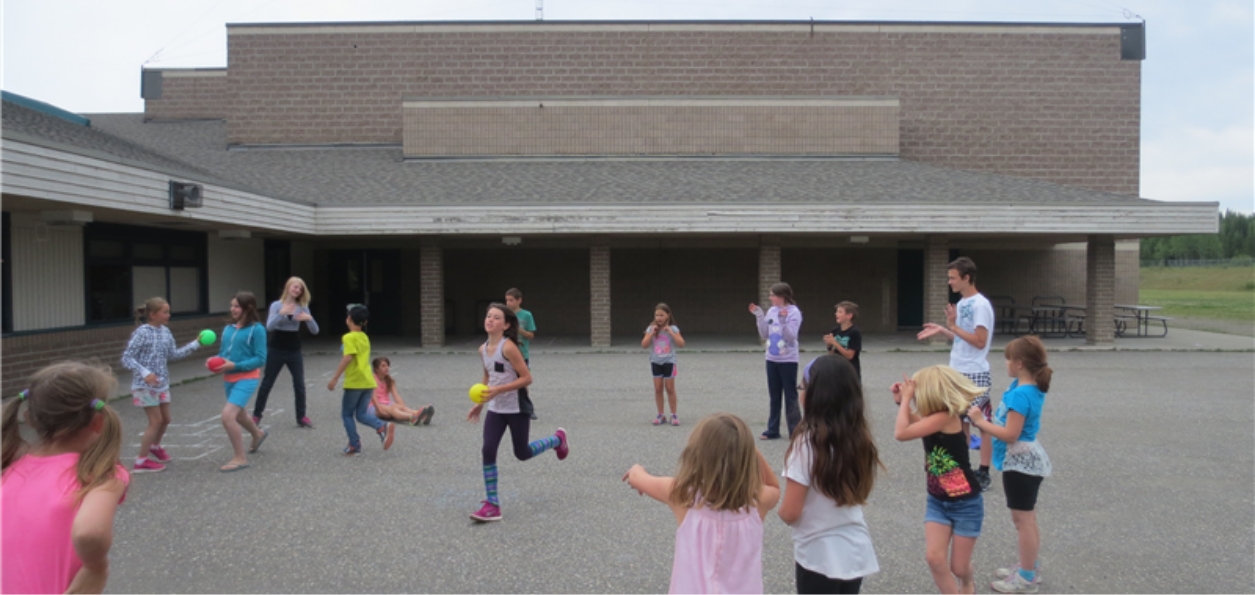The driving question: How can we foster positive relationships to improve our school culture while encouraging physical activity for all students?
We are a rural school with a population of 70 elementary students in K-7. Many of our students live in the country and the school is key to their social/emotional, academic and physical development (exercise). Other students live closer to the city and are able to access and be a part of recreational and competitive sports programs.
Staff has noted that not all students are willing to participate during gym classes or when playing non-structured games at recess/lunch with those with experience in competitive sport; hockey, ringette, soccer, baseball or lacrosse. As a result the student body is not as cohesive or physically active as staff would like.
The staff chose to participate in a full day workshop to learn about ‘Play is the Way’. Play is the Way, we learned, is as much a process as it is a program. It is a program of cooperative, physically interactive games that serve as the back bone for a process that builds a school culture of;
– Continuous self-improvement
– Adult guidance and role-modelling
– Safety and non-violence
– Peer support, trust, respect and understanding
– Self-regulation and socially responsible behaviour
– Openness, acceptance and belonging
– Develops leadership skills
– FUN for all ages
After taking the workshop, staff worked with the whole student body in teaching a number of these cooperative interactive games, practicing not only the events but also using language which inspires socially responsible behaviour with all students.
We have noted a huge change in not only multi-age peer relationships in our school community but also in the desire for students to willingly participate in cooperative, non-competitive physical play.
In conclusion, it has been evident that our school culture has improved to the point that students are looking after students on the playground, they are better able to problem-solve, reconcile differences, and are more physically active. We plan to continue with this program/process at our school in September and will encourage our intermediate students to lead the way in organizing and motivating younger students to learn, play, and be physically active.


